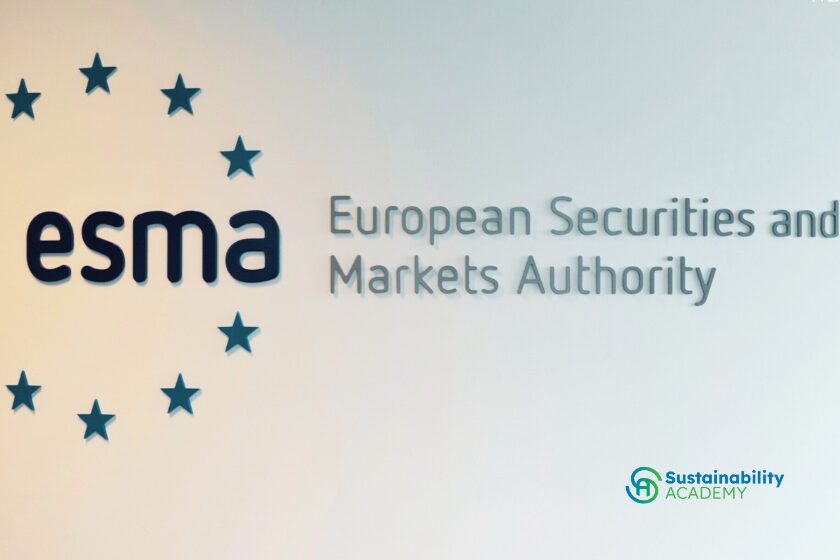The European Securities and Markets Authority (ESMA) recently published its 2024 European Common Enforcement Priorities (ECEP) statement, setting forth new requirements for corporate reporting. This statement, alongside ESMA’s Corporate Sustainability Reporting Directive (CSRD), emphasizes double materiality and ESG transparency—central pillars for sustainable corporate practices.
These priorities underscore the importance of transparency, risk management, and social sustainability—areas deeply integrated into the Sustainability Academy’s courses. Here’s a look at how ESMA’s standards align with the academy’s training for future-ready sustainability professionals.
Key Reporting Priorities Set by ESMA for 2024
-
Double Materiality and the Corporate Sustainability Reporting Directive (CSRD)
Double materiality, foundational to the CSRD and ESMA’s 2024 priorities, highlights how companies must report on both their financial risks and their social and environmental impact. This approach is crucial for organizations looking to align with evolving regulatory standards. Our courses prepare practitioners to integrate double materiality into their ESG strategies, covering how it impacts both internal operations and external reporting.
-
Enhanced Transparency and Data Quality in Sustainability Statements
The European Sustainability Reporting Standards (ESRS) will soon require companies to provide high-quality, comparable, and accessible data. ESMA stresses that transparency in sustainability reporting is fundamental for building stakeholder trust. In response, the Sustainability Academy’s courses focus on ESG data management and best practices for meeting ESRS criteria, ensuring that participants are equipped to deliver reliable, standardized data.
-
Disclosure on Liquidity and Risk Management
ESMA’s guidelines also emphasize clear disclosures on liquidity considerations and supplier finance arrangements (SFAs), noting that these aspects are vital in assessing a company’s risk profile. Our risk management modules are designed to help participants meet these standards by embedding strong risk assessment processes into sustainability reporting, with a focus on transparency and accountability.
-
Social Sustainability and Workforce Inclusivity
In its 2024 priorities, ESMA places heightened attention on social dimensions, including workforce diversity and inclusion—an area increasingly scrutinized by stakeholders. The academy’s courses in social governance cover best practices for fostering diversity and building inclusive workplace environments, supporting participants in meeting both ESMA’s guidelines and broader societal expectations.
-
Auditing and Assurance for ESG Data
To enhance credibility, ESMA highlights the need for robust auditing and assurance processes to verify sustainability data, promoting transparency and accuracy. The Sustainability Academy’s auditing modules help professionals build the skills needed to ensure their ESG reports meet these validation standards, ultimately strengthening their organization’s sustainability commitment.
The Importance of Double Materiality for Sustainability Leaders
Double materiality isn’t merely a compliance exercise; it’s a tool for strategic advantage. By addressing both the financial risks and societal impacts of corporate activities, organizations can better navigate ESG risks and meet stakeholder expectations. This alignment with global sustainability goals supports resilience in an ESG-focused market—a concept emphasized across the Sustainability Academy’s programs.
Join the Sustainability Academy
In light of the European Securities and Markets Authority’s (ESMA) 2024 corporate reporting priorities, particularly the emphasis on double materiality and enhanced transparency, the following courses from the Sustainability Academy are especially pertinent:
1. Online Certificate on CSRD & ESRS Standards
- Description: This course offers in-depth knowledge of the Corporate Sustainability Reporting Directive (CSRD) and the European Sustainability Reporting Standards (ESRS), focusing on double materiality and compliance requirements.
- Relevance: Aligns with ESMA’s emphasis on double materiality and the need for comprehensive sustainability disclosures.
2. Online Certificate on Sustainability (ESG) Reporting
- Description: Provides a step-by-step introduction to sustainability reporting, covering guidelines such as the Global Reporting Initiative (GRI) and other frameworks.
- Relevance: Addresses ESMA’s call for enhanced transparency and quality in ESG disclosures.
3. Online Certificate on SASB & TCFD Reporting – Alignment with IFRS S1-S2
- Description: Focuses on the Sustainability Accounting Standards Board (SASB) standards and the Task Force on Climate-related Financial Disclosures (TCFD) recommendations, including alignment with IFRS S1 and S2.
- Relevance: Supports ESMA’s priorities on risk management and climate resilience disclosures.
-
4. Online Certificate on ESG Ratings and Investments
- Description: Covers international standards related to ESG performance and socially responsible investing, providing insights into ESG ratings and reporting to investors.
- Relevance: Enhances understanding of ESG factors critical for transparent reporting, as emphasized by ESMA.
5.Certified Climate Resilient Officer (CRO)
- Description: Equips professionals with skills to integrate climate risk into strategic planning and understand financial risks associated with climate change.
- Relevance: Addresses ESMA’s focus on climate resilience and the importance of disclosing climate-related risks.

